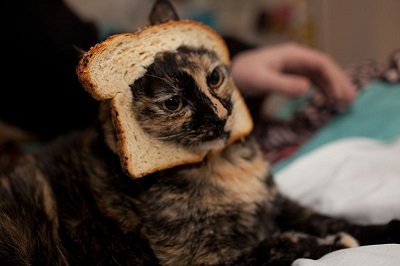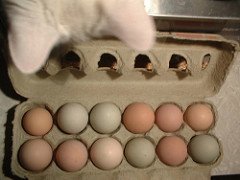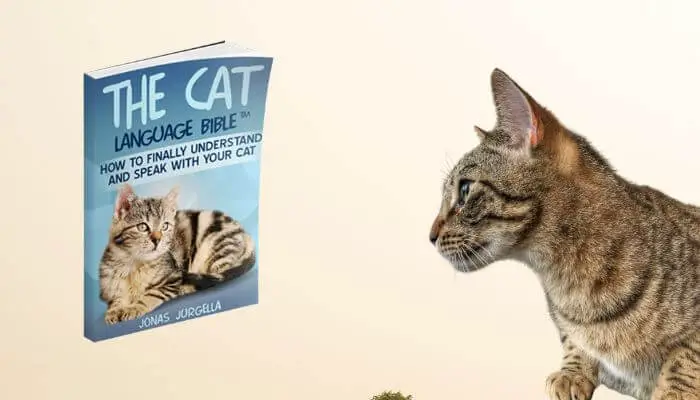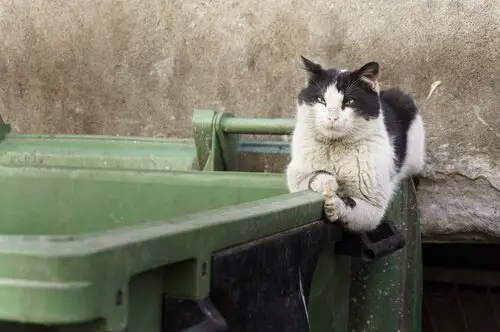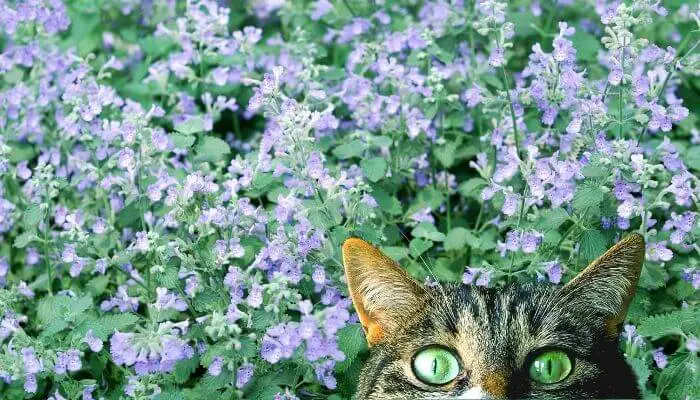Feeding cats dairy products seems to be fairly common, maybe thanks to the classic image of cats drinking from a bowl of milk, but is milk and cheese actually good for your four-legged feline?
The short answer is no, cow’s milk is not good for cats and therefore it is not a healthy addition to their diet.
If your cat is a keen cheese chomper then we recommend trying these Dreamies treats with cheese:
However, there is more to this story so let’s take a closer look at whether or not cats can eat cheese.
Contents
Some Cats Can’t Eat Cheese Because They Are Lactose Intolerant
Cheese is made from cow’s milk which can cause upset in your cat’s digestive system.
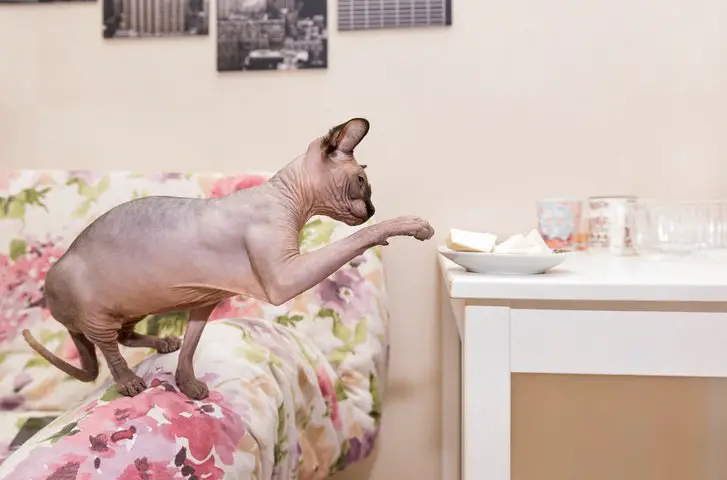
A large number of cats are actually lactose intolerant which means consuming milk or cheese can result in your cat experiencing diarrhoea or vomiting.
As milk is not a natural part of a cats diet their digestive systems are not able to effectively deal with these food types.
Cats Don’t Naturally Eat Cheese
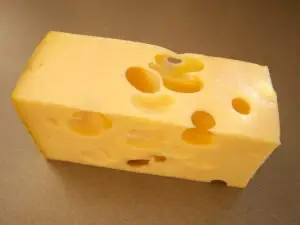
A cat is a natural carnivore, and they do not naturally eat a product such as cheese.
In fact, a cat does have the lactase enzyme that is needed for digesting the lactose that is present in milk but cats have the enzyme in much smaller amounts than humans do.
The lactase enzyme is present primarily in kittens in order to allow them to consume and digest their mother’s milk.
As a cat grows older and begins eating more solid food the lactase enzyme will be produced in considerably smaller amounts which is why your cat will likely have adverse reactions to consuming dairy products including cheese, ice cream, butter, cream, whipped cream and anything with milk in it.
Can Kittens Eat Cheese?
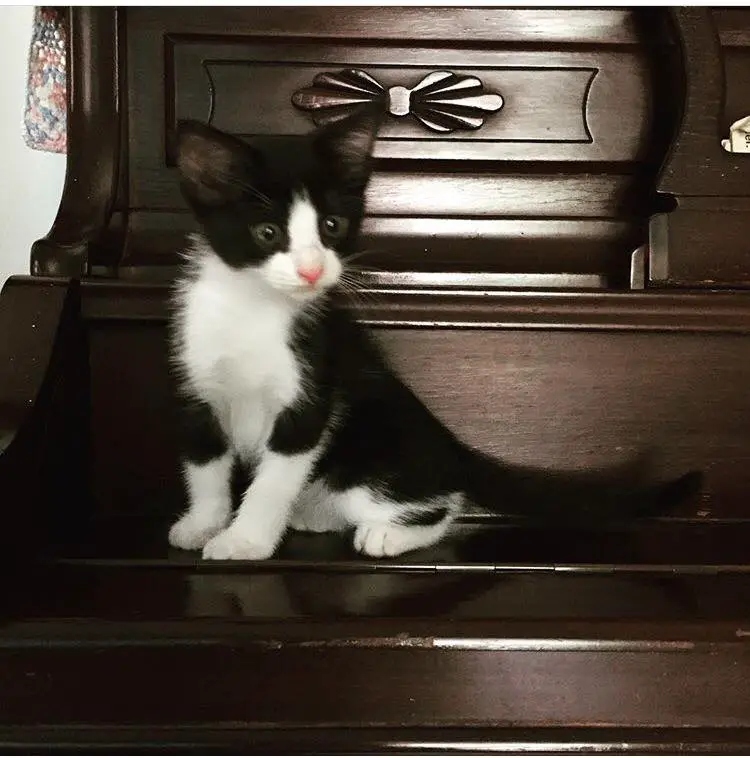
I know what you’re thinking, if a kitten can digest milk then they can safely digest cheese right?
Wrong.
A kitten is able to digest milk when it is nursing but as soon as weaning begins (at around four weeks) the lactase production significantly reduces.
Therefore, by the time the kitten is able to eat cheese without choking they won’t actually be able to digest it any better than an older cat.
On top of this, kittens are fragile and feeding them something that has a high risk of causing digestion issues and loose stools is not a good idea.
If you feed your kitten or cat an incorrect diet then the effects of the food may mask symptoms of serious health problems, for example, you may believe your cat is unwell due to feeding pieces of cheese when it is actually suffering from a more serious issue such as a parasite infection.
Ingredients in Cheese
One of the things to remember is that what we know simply as ‘cheese’ is actually a combination of several ingredients.
There are often ingredients such as salt in cheese and feeding a cat food that is high in salt can cause increased thirst and abnormal urination.
If the high salt diet continues then it can lead to health issues such as hypertension and kidney problems.
There may also be other ingredients in the cheese such as onion, garlic, spices such as cumin (in Gouda cheese) and additives, some flavouring can be toxic and therefore it is best to avoid the cheese altogether.
High Fat Content
The high fat content in cheese may be one of the reasons your cat so innocently purrs and sweetly begs when they see you cutting some up but the reality is that, just like for us humans, too much fat causes health problems.
If you regularly feed your cat cheese and other high fat content items they will suffer from obesity and the associated health issues such as feline diabetes and heart disease.
Hiding Cat Medicine in Cheese
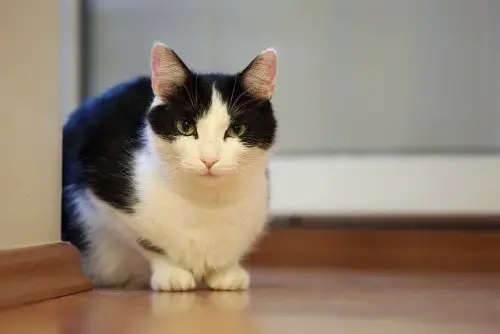
More often than not the health implications and discomfort produced by feeding your cat cheese is not worth the few seconds of enjoyment your cat gets from eating it.
However, there are times when giving your cat a lump of cheese can have its benefits, especially when you are trying to get kitty to take medication.
Of course, if your cat requires regular medication then providing it hidden in cheese isn’t a good option but if this is a once off then cheese can be a helpful solution.
If your cat has not experienced diarrhoea or vomiting from cheese or dairy previously and your veterinarian has given the go ahead then a small lump of cheese shouldn’t be a problem but keep a close eye on your cat for reactions.
The Occasional Cheesy Treat
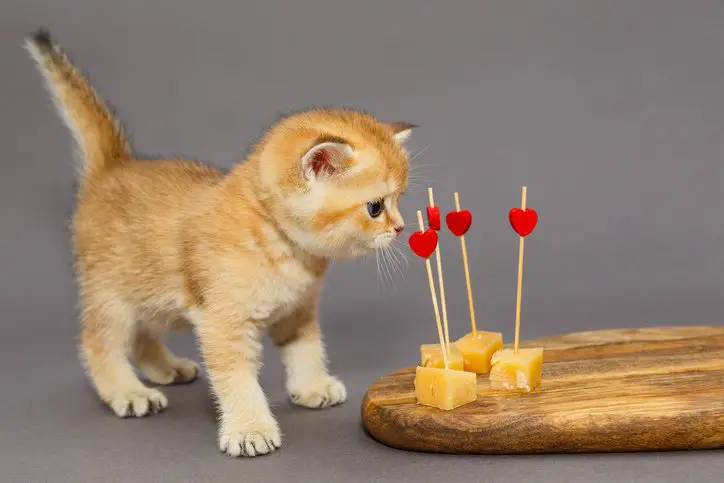
As we mentioned above, it is often not worth it to give your cat cheese.
However, if you have been treating your cat with the very occasional lump of cheese and are thinking, “well my cat loves it.”
Then there is not much to worry about, small amounts can be safe and if it has been given as a very rare treat then there should be no health implications.
However, if your cat has experienced gas or diarrhoea after eating cheese then you should definitely stop feeding dairy products.
There are more healthy options that you can give to your cat instead so we recommend leaning more towards those.
Replace Cheese with these Great Options
Of course, there are plenty of kitty snacks available at pet shops but if you are looking for food items you may have in your kitchen to give to your cat as special treats, take a look at the list below.
These foods can make healthier treats for your cats than cheese but remember to avoid anything with added salt, spices, sauces or flavourings as these can be toxic to your cat.
• Meat such as chicken, liver, lamb or beef
• Eggs (cooked)
• Cooked carrots
• Pumpkin
• Bananas
• Blueberries
• Cooked tuna or salmon (be careful with tuna though it can cause problems, read our article on can cats eat tuna for more details)
Cats Should Avoid Dairy
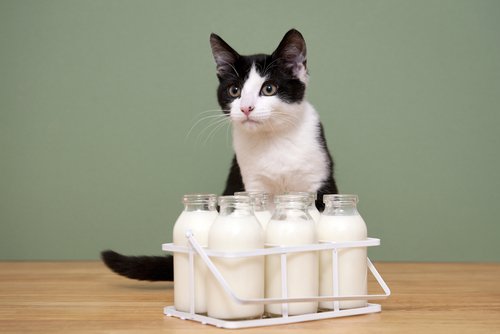
As a general rule of thumb, it is best to avoid giving dairy as part of your cat’s diet.
This is simply because your cat cannot digest it very well and consuming cheese does not give your cat any health benefits.
Can Cats Eat Non-Dairy Cheese?
While non-dairy cheese made from plant-based milks may be gentler on your cat’s digestive system, this question brings us back around to the ingredients involved.
Remember that even though the cheese may be non-dairy it is probably still high in salt, fat and flavourings which does not make an ideal treat.
Cats Don’t Need Cheese
Many owners like to give their cat a small piece of cheese on occasional as a ‘special treat’.
Just remember that cats do not need to eat cheese and they do not benefit from it so it will be better for your kitty to eat an alternative treat.
Why Does My Cat Want Cheese if It’s Not Good?
The fat and protein content of cheese may be what makes your cat so keen to eat it as studies show that cats will likely pick foods based on their specific dietary needs.
Cats require fat, protein and carbohydrate from their diet and despite being a very poor source (digestively speaking), cheese is high in both fat and protein.
This may explain the desire for eating cheese but even if they want to eat it that doesn’t mean they should eat it.
What Else is Bad for My Cat?
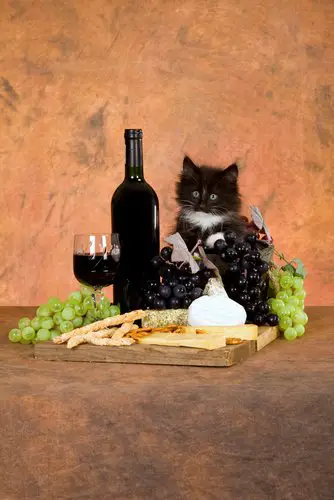
Cheese and dairy products aren’t the only items that you should avoid feeding your cat, below are some other human foods that cats should not eat due to the likelihood of causing digestive issues, nutritional imbalances and side effects such as appetite loss, vomiting and diarrhoea.
• Chocolate – Chocolate contains theobromine and caffeine. Ingestion of this can cause heart problems, seizures or muscles tremors.
Also Read: Can Cats East Chocolate?
• Alcohol – Consumption of alcohol can lead to severe health problems including liver damage and brain damage if (for some strange reason) your cat seems interested in alcoholic drinks try them with an alcohol-free alternative such as wine for cats.
• Caffeine-filled Drinks – Tea, coffee and energy drinks are often full of caffeine and this can cause your cat to experience heart palpitations, rapid breathing and muscle tremors.
• Raw eggs, meat and fish & fat trimmings – There is a high risk of Salmonella or E. coli when feeding these foods and your cat will likely experience vomiting, diarrhoea and even pancreatitis (which is due to excessive fat).
• Onions and Garlic – We touched on this earlier when discussing the ingredients of some cheeses. Onions and garlic can cause health problems and digestive upset to your cat and regularly consuming certain onion types could cause anaemia.
Prevention is Better Than Cure
Now you know that cheese is not the ideal snack for your cat it is best to reach for something a bit more kitty friendly next time treats are in order.
There are many cat friendly options that we are sure your furry friend will love.
So, keep the cheese out of reach and easily avoid the health problems associated with feeding cat’s dairy. Remember that your cat does not gain anything nutritionally from milk so there’s no reason to feed it.
Sources:
https://www.vets-now.com/2017/02/foods-poisonous-to-cats/
http://www.vetstreet.com/our-pet-experts/whats-the-deal-with-cats-and-milk
https://pets.webmd.com/cats/guide/cats-and-dairy-get-the-facts#1
https://bondivet.com/cats/vet-tips/88-why-you-shouldnt-give-cows-milk-to-cats
As an Amazon Associate I may earn a small fee from qualifying purchases at no extra cost to you. This helps us run the site, so thanks for your support!


